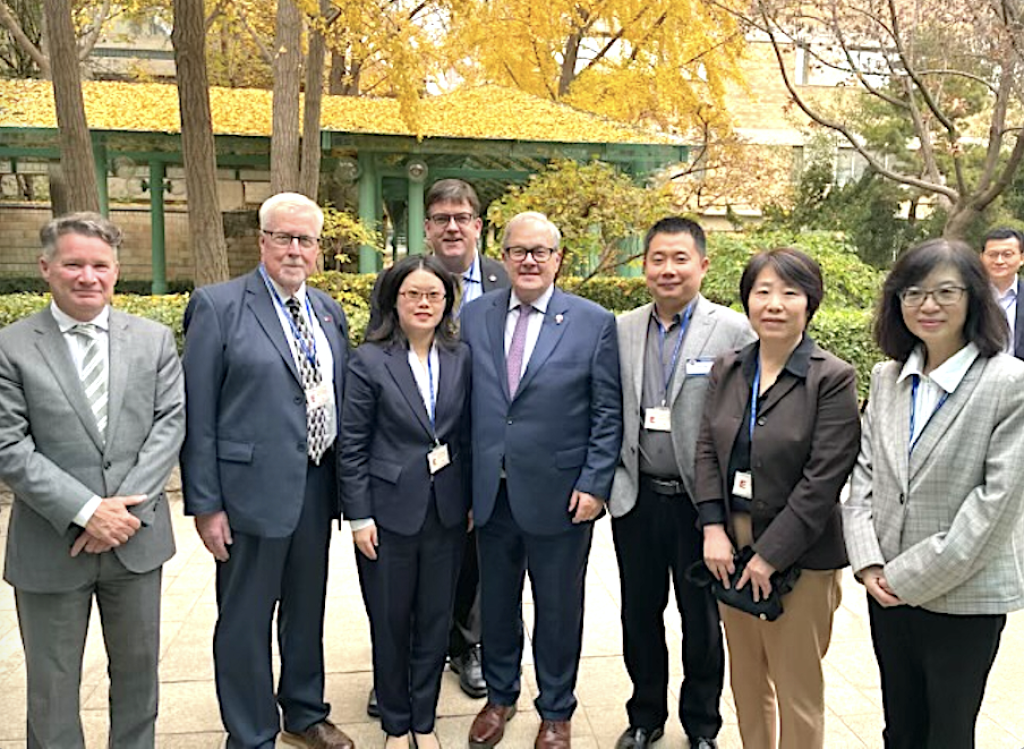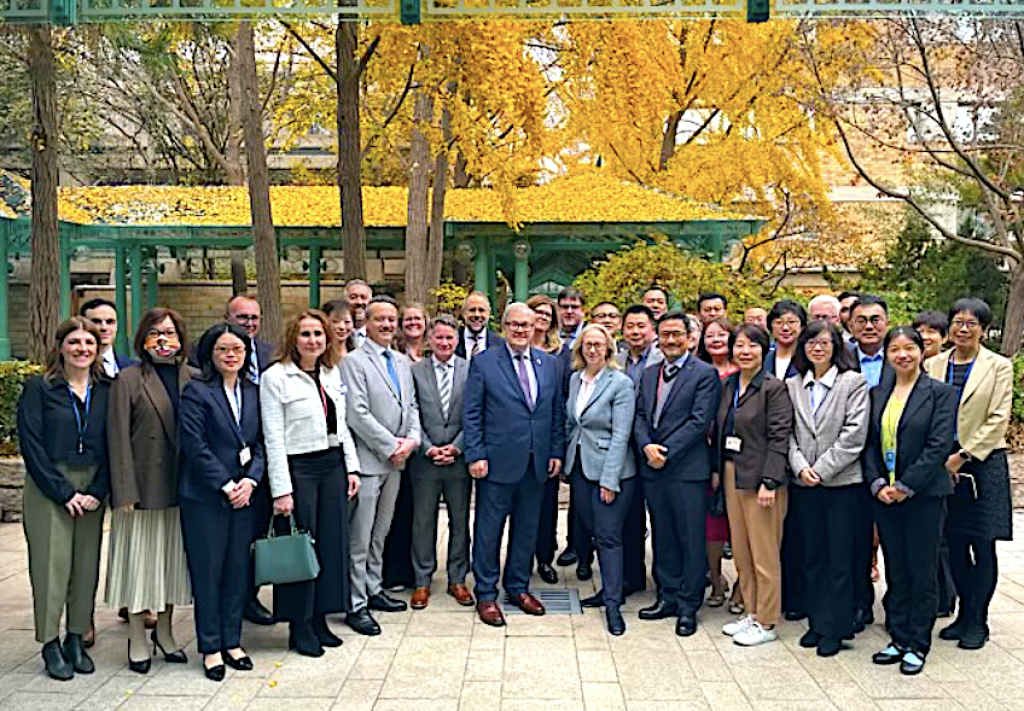
Heckbert, Executive Director of the Canadian Pork Council, and Minister Lawrence MacAulay.
Pictures courtesy Jennica Klassen,
Communications Specialist, Canadian Pork Council

Lawrence MacAulay, Minister of Agriculture and Agri-Food, recently concluded a productive visit to Beijing, China, where he worked to strengthen trade opportunities for Canadian farmers, processors, and exporters. The Minister’s mission focused on advocating for fair competition, a level playing field for businesses, and fostering sustainable and inclusive trade relationships between Canada and China.
During his visit, Minister MacAulay engaged with Chinese industry leaders, importers, and Canadian stakeholders to address opportunities and challenges in agricultural trade. He raised concerns about China’s anti-dumping investigation on Canadian canola seed imports, pressing for a fair resolution and the restoration of full market access for Canadian beef and dry pet food containing poultry ingredients. The Minister also emphasized Canada’s commitment to resolving delays in China’s approval process for other market access requests.
“Canada has the best products in the world, and it’s my job to promote them,” Minister MacAulay stated. “This was my sixth trade mission to China over two terms as Minister of Agriculture and Agri-Food. I am always proud to help showcase our delicious, high-quality, sustainable foods while advocating for our trading relationship to be fair and beneficial to our hardworking producers.”
As the keynote speaker at the Canada China Business Council Annual General Meeting and Business Forum, the Minister highlighted the Council’s crucial role in strengthening trade ties. He showcased how the Canada Brand program elevates the reputation of Canadian products for their quality, innovation, and sustainability, providing exporters with a competitive edge. Minister MacAulay also visited the MARS Global Food Safety Centre in Canada and China to learn about its cutting-edge work in food safety research and stakeholder collaboration.
A significant development during the visit was the announcement that the Canadian Meat Advocacy Office would go up in Beijing. Supported by a federal investment of $223,850 over two years through the AgriMarketing program, this office will provide an on-the-ground presence for Canada’s red meat sector, facilitating access to Canadian products in the Chinese market. Minister MacAulay expressed his satisfaction with the collaboration, which included participation from Chris White, President and CEO of the Canadian Meat Council and Canada Pork, and Stephen Heckbert, Executive Director of the Canadian Pork Council.
China remains Canada’s second-largest customer for agriculture, agri-food, and fish and seafood products, with sales totalling $11.5 billion in 2023. It is Canada’s top canola seed trade partner, importing over 4.5 million tonnes valued at $3.8 billion in the same year. However, challenges persist, such as the anti-dumping investigation on canola imports launched by China on September 9, 2024. Minister MacAulay reaffirmed Canada’s commitment to standing up for its businesses and workers against unfair trade practices.
This visit also highlighted Canada’s broader Indo-Pacific strategy. In February 2024, Minister MacAulay opened Canada’s first-ever Indo-Pacific Agriculture and Agri-Food Office (IPAAO), marking a new chapter in Canada’s engagement with the region. Encompassing 40 economies and over $47.19 trillion in economic activity, the Indo-Pacific region represents the world’s fastest-growing market and includes 11 of Canada’s top 20 trading partners.
Minister MacAulay’s efforts in Beijing underline Canada’s dedication to fostering fair, resilient, and prosperous agricultural trade relationships with one of its most significant trading partners. There are many PR discussions but little on the current canola fiasco and EV tariffs.
China has launched an anti-dumping investigation into Canadian canola seed imports, following Canada’s 2024 tariffs on Chinese-made electric vehicles and other products. Announced on September 3, 2024, the investigation aims to determine if Canadian canola is sold below market prices in China, potentially leading to further trade restrictions.
Canola is a key agricultural export for Canada and is highly economic, particularly in trade with China. The investigation has already affected markets, with canola futures prices dropping immediately after the announcement.
The Canola Council of Canada remains confident the investigation will confirm Canada’s adherence to rules-based trade. Minister MacAulay and other officials have emphasized the importance of maintaining open and stable trade relationships, expressing concern over the potential impact on producers.
This development highlights the fragile nature of Canada-China trade relations, with agricultural commodities often becoming leverage points in broader disputes. The investigation’s outcome could have far-reaching consequences for Canada’s canola industry and agricultural exports. •
— By Harry Siemens





